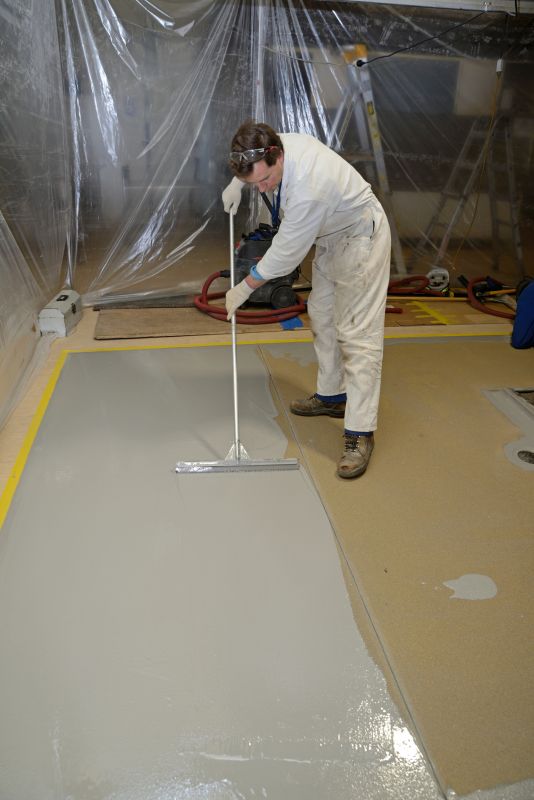Expert Picks For Epoxy Service Equipment And Supplies
Upgrade your epoxy projects with industry-favorite products built for precision, durability, and ease of use.
 Products for epoxy service encompass a wide array of tools and materials designed to facilitate the application, mixing, and finishing of epoxy resins. These products are essential for professionals and DIY enthusiasts alike who seek to create durable, smooth, and high-quality epoxy surfaces. From mixing tools to protective gear, the right selection can significantly impact the final outcome of an epoxy project.
Products for epoxy service encompass a wide array of tools and materials designed to facilitate the application, mixing, and finishing of epoxy resins. These products are essential for professionals and DIY enthusiasts alike who seek to create durable, smooth, and high-quality epoxy surfaces. From mixing tools to protective gear, the right selection can significantly impact the final outcome of an epoxy project.
Top Overall Option
Epoxy Mixing and Application Kit
A comprehensive epoxy mixing and application kit typically includes dual-cartridge dispensers, stir sticks, mixing cups, and protective gear. Designed for versatility, this kit simplifies the process of preparing and applying epoxy, ensuring accurate measurements and thorough blending. It is suitable for various projects such as flooring, countertops, and artistic surfaces, providing a reliable foundation for achieving consistent results.
Types of Products For Epoxy Service
Epoxy Resin and Hardener
The core components of epoxy applications, available in various formulations for different project needs.
Mixing Buckets and Sticks
Specialized containers and stir sticks designed for accurate and thorough epoxy mixing.
Dispensing Guns
Devices that facilitate precise measurement and dispensing of epoxy components, especially dual-cartridge systems.
Surface Cleaners and Degreasers
Products used to prepare surfaces before epoxy application, ensuring proper adhesion.
Protective Gear
Gloves, respirators, and coveralls designed to safeguard users from chemical exposure during epoxy work.
Application Rollers and Brushes
Tools for spreading epoxy evenly across surfaces, reducing bubbles and streaks.
Sandpapers and Abrasives
Materials used for surface preparation and finishing, achieving smooth, polished results.
Polishing and Buffing Compounds
Products that enhance the gloss and clarity of epoxy surfaces after curing.
Sealers and Topcoats
Protective layers that seal the epoxy surface and improve durability.
Heat Guns and Curing Lamps
Tools used to accelerate curing or remove bubbles during application.
Color Pigments and Additives
Materials to customize epoxy color or add texture effects.
Masking Tapes and Films
Protective coverings to define edges and prevent overspill during application.
Leveling Tools
Devices such as spirit levels and screeds to ensure flat, even surfaces.
Vacuum Chambers
Equipment used to remove trapped air bubbles from epoxy mixtures, especially in artistic applications.
Popular Choices
All-in-one kits containing resin and hardener, suitable for various DIY projects.
Tools designed for precise mixing of epoxy components, promoting consistent results.
Essential safety gear to prevent skin contact with epoxy chemicals.
Flexible tools for mixing and spreading epoxy without sticking.
Devices such as heat guns or torches used to eliminate bubbles during curing.
Products to ensure surfaces are free of dust, grease, and residues before applying epoxy.
Tools for smoothing epoxy surfaces after curing, preparing for polishing or sealing.
Abrasive pads used to achieve high-gloss finishes on epoxy surfaces.
Protective waxes that enhance the shine and durability of epoxy surfaces.
Pigments and dyes to customize epoxy with various hues and effects.
Tapes used to create clean edges and protect areas during epoxy application.
Tools to assist in achieving flat, even epoxy layers.
Equipment to remove air bubbles from epoxy mixtures, especially for artistic projects.
Proper preparation is critical in epoxy applications, which is why high-quality surface cleaners and primers are often used before applying epoxy coatings. Mixing tools such as epoxy-specific buckets, stir sticks, and dual-cartridge dispensers ensure accurate proportions and thorough blending, reducing the risk of imperfections. Additionally, applicators like rollers, brushes, and squeegees help achieve even layers and minimize bubbles.
Once the epoxy is applied, finishing products such as sanding pads, polishing compounds, and sealers become vital. These help smooth out imperfections, enhance gloss, and protect the surface from damage over time. Safety equipment including gloves, respirators, and protective clothing is equally important to ensure safe handling of chemical components involved in epoxy work.
Choosing the right products for epoxy service depends on the specific project, surface type, and desired outcome. Whether working on floors, countertops, or artistic projects, having a comprehensive set of tools and materials can streamline the process and lead to more professional results. Investing in quality products tailored for epoxy applications can also improve durability and aesthetic appeal, making your project stand out.
Key Buying Considerations
- Compatibility of epoxy resin and hardener for your specific project needs.
- The viscosity of the epoxy, influencing ease of application and flow characteristics.
- Cure time and pot life, which affect workflow and project timelines.
- Surface preparation requirements to ensure proper adhesion and finish quality.
- Safety features of protective gear, ensuring adequate protection during handling.
- Application tools included or needed for spreading and leveling epoxy evenly.
- Compatibility with pigments, dyes, or additives if customization is desired.
- Finish options such as matte, satin, or high-gloss, depending on aesthetic goals.
- Durability and resistance properties relevant to the surface environment.
- Ease of mixing and dispensing to minimize waste and errors.
- Availability of replacement parts and accessories for ongoing projects.
- Storage conditions and shelf life of epoxy components.
- Cost considerations balanced with product quality and performance.
- Brand reputation and customer reviews to gauge reliability and satisfaction.
- Environmental conditions required during curing, such as temperature and humidity.
This page contains affiliate links. We may earn a commission at no additional cost to you if you choose to purchase through these links.
